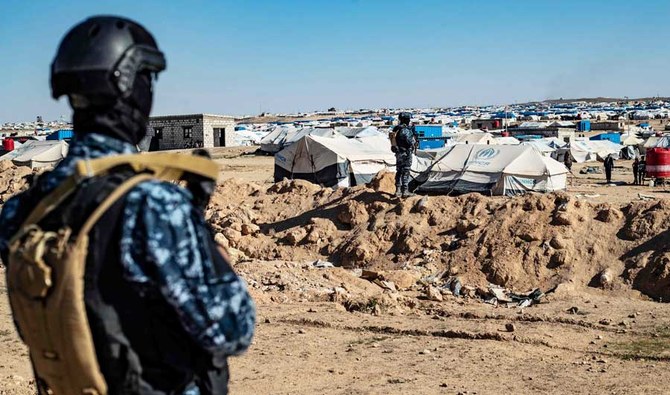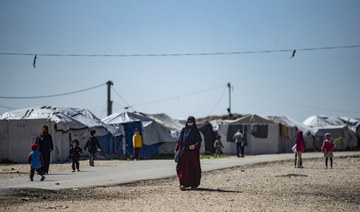MOSCOW: Rights groups in Moscow urged Russians to take responsibility for abuses in Syria as they released a damning report on Friday on the country’s role in the decade-old conflict.
Published to coincide with the 10-year anniversary of the Syrian war, the report is the first into the conflict by Russian campaigners and seeks to shed light on the victims of the country’s military actions in Syria, a taboo topic for Kremlin-friendly media.
Its findings are in stark contrast to Moscow’s official narrative and President Vladimir Putin’s praise of the Russian military for intervening in 2015 to root out “terrorists” and support Bashar Assad’s regime.
Prepared by Memorial, Russia’s top rights group, and several other organizations, the 200-page report features interviews with more than 150 witnesses to events in Syria.
“The overwhelming majority of our interviewees do not see Russia as a savior, but as a destructive foreign force whose military and political intervention helped bolster the war criminal heading their country,” the groups said.
“Some of the people we interviewed revealed that they or their loved ones had been victims of Russian bombings.”
The report accuses Russia of abuses in Syria including bombing civilians indiscriminately and backing Syria’s regime, which has been accused of atrocities including targeting civilians, using chemical weapons and starving people to death in besieged cities.
FASTFACT
A 200-page report — prepared by Memorial, Russia’s top rights group, and several other organizations — features interviews with more than 150 witnesses to events in Syria.
The campaigners also noted abuses by US-led forces who had intervened in Syria, but said most first-hand accounts were related to “abuses suffered at the hands of Syrian government forces and their allies, and armed opposition groups, including terrorist groups.”
Memorial’s Oleg Orlov, speaking to reporters, compared Russia’s bombing of Syrian civilians to the military’s tactics in Chechnya where Moscow fought two wars against separatists in the 1990s and 2000s.
The report urged Moscow to conduct independent investigations into the Russian army’s bombardments in Syria and pay compensation to victims.
The authors, who worked on the study for two years, were unable to enter Syria and interviewed Syrians who had fled the war in Lebanon, Turkey, Germany, Russia and elsewhere.
A woman from the Homs city neighborhood of Waer, which was under siege between 2013 and 2016, told the authors Russia’s intervention emboldened Syria’s regime.
“In the six months since the start of Russian bombing, there were more victims than there were over two years of Syrian bombing,” said the woman, who at one point weighed just 33 kg.
Russia has denied that the Syrian authorities have used chemical weapons against civilians and used its veto power at the UN Security Council to protect Damascus.
But the Russian activists said they collected testimony from witnesses of attacks using sarin and other chemical weapons.
“I saw 30 children lying dead with other people still pouring water over them,” a surgeon from Eastern Ghouta told the authors. “I will never forget that scene.”
The campaigners said they wanted as many Russians as possible to read their study and “understand their responsibility for what is happening in their name in Syria.”
“We felt both bitter and ashamed for how our Syrian interviewees view Russians.”
Despite their efforts, Orlov said the rights campaigners did not hold out much hope.
“I am afraid that we should not expect a serious reaction from Russian society,” he said




















